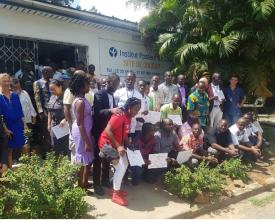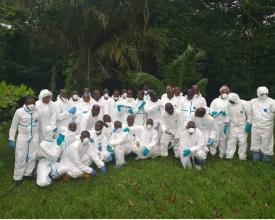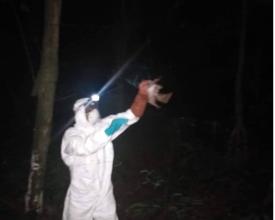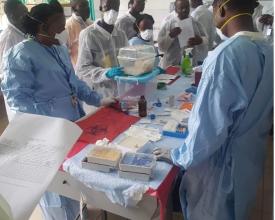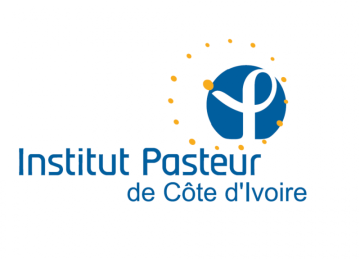
Country-Country Capacity Strengthening for Wildlife Disease Surveillance
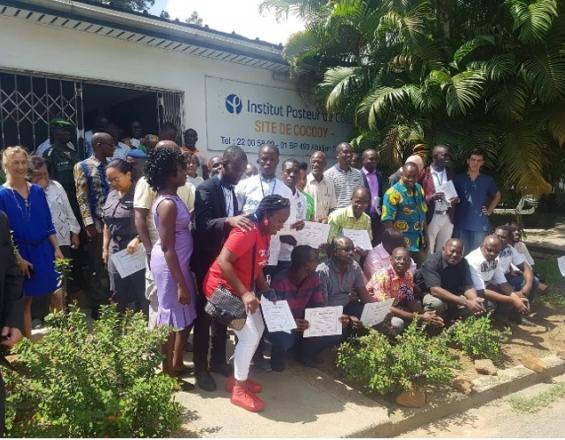
Under the PREDICT-2 Liberia project, a field team was trained on pathogen surveillance in wildlife, including safe and humane capture, holding, sampling, and release of animals, as well as sample cold chain, transport, and biosafety and personal protective equipment (PPE) use. This team went on to sample over 5,000 bats and several hundred rodents to increase understanding of viral circulation patterns in West Africa, including a focus on Ebola virus. In 2019, government partners in neighboring Côte d’Ivoire expressed their interest in strengthening wildlife surveillance capacity. To support development of this capacity, the PREDICT Liberia and Côte d’Ivoire teams co-led a training at the Abidjan Zoo in June 2019, with the trainers from Liberia team providing hands-on training in bat and rodent sampling.
Impacts
A total of 50 participants from government institutions in Côte d’Ivoire (including public health, wildlife, and veterinary services) were trained. In addition to specific sampling and handling practices, broader themes included personal protective equipment and animal welfare in the sampling process, all based on rigorous global guidelines developed by the PREDICT project. This applied training benefitted from trainers knowledgeable about the conditions on the ground, including infrastructure and environmental factors and species in the region. Language barriers were avoided through involvement of national and international technical staff fluent in both English and French. All team members pitched in to make the training a success, including the team drivers from Liberia responsible for transport to Côte d’Ivoire. The training reinforced the value of train-the-trainer approaches. In Liberia, the team had been extensively trained on PREDICT protocols by international wildlife veterinarians, becoming the first Liberian workforce trained in pathogen surveillance in wildlife. Their work led to the first-ever detection of Zaire ebolavirus in a bat in West Africa. The training reinforced the pride of the Liberia team in their skills and showed the utility of country-country collaboration in regional disease detection.

